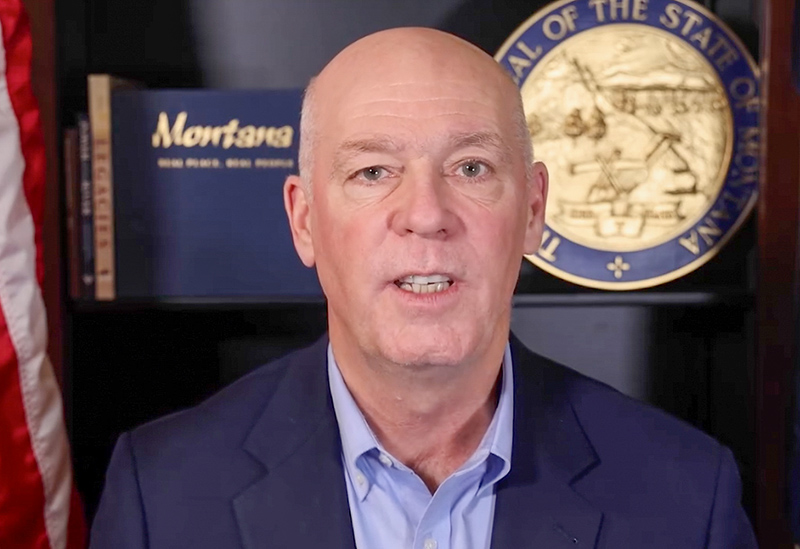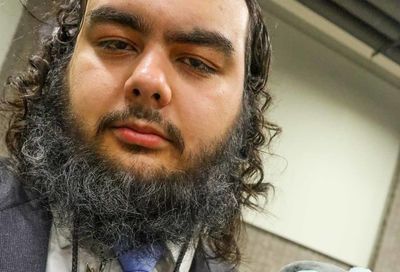LGBTQ groups warn deadline to repeal HB 2 is fast approaching
Advocates reject "compromise" bill, which they say would keep HB 2's most pernicious provisions in place

LGBTQ leaders are warning that there is limited time before North Carolina loses out on more economic opportunity by being denied the chance to host various NCAA and ACC sporting events. The NCAA, in particular, has already warned the state that it risks losing the chance to host various sports championships through 2022 if the state does not repeal its HB 2 law.
Passed last year, HB 2 bars transgender people from using restrooms or changing facilities that match their gender identity. But the measure also prohibits municipalities within the state from passing LGBTQ-inclusive nondiscrimination protections.
Following passage of the bill, the NCAA, ACC and NBA pulled various events from the state and relocated them elsewhere. Entertainers cancelled concerts or appearances, and several businesses scuttled plans for expansions in or relocation to North Carolina, including, in the past week, an entertainment venue that was scheduled to be built in High Point, N.C., that was put on hold.
On Wednesday, the LGBTQ groups warned that similar economic consequences would continue to be visited upon the state if the bill was not repealed in full.
“Like most North Carolinians, Republican and Democrat alike, I have seen how deeply HB 2 has hurt our state,” Chris Sgro, the executive director of Equality NC, said in a Wednesday afternoon conference call with reporters.
“I live in Greensboro. Our Coliseum complex has taken a huge hit. Our mayor, Nancy Vaughan, tells me we are set to lose another 50-plus bids on NCAA and ACC tournament games if HB 2 is not repealed,” Sgro added. “And that doesn’t simply mean that we aren’t able to watch college basketball in our city. It also means that hundreds, who would have been working security, janitorial services, and concessions won’t have a paycheck for that evening. And the story isn’t unique to Greensboro. It’s happening all over the state, from Murphy to Manteo.
“This week is all we’ve got, and there’s no more time for antics,” he added. “There’s only one thing left to do: there must be a clean repeal vote of HB 2.”
Sgro also noted that a “compromise” bill being floated by Republicans that would repeal part of HB 2 but keep some of its most discriminatory provisions intact is unacceptable to equality advocates, who have dubbed it “HB 2.0.” They argue that people’s civil rights should not be subject to a popular vote, and that the bill is just a sleight of hand to convince the business community, in particular, that the state is not actively discriminating against LGBTQ people.
That bill, HB 186, would repeal HB 2, but would continue to prohibit local governments from passing ordinances to protect transgender people in public accommodations, including restrooms. State law would explicitly exclude LGBTQ people from any sort of nondiscrimination protections, including in housing and employment, for the foreseeable future. In addition, the bill would allow citizens to repeal or overturn via referendum any protections for LGBTQ people (again, with the understanding that public accommodations for transgender people could not be included in any nondiscrimination ordinance).
A previous attempt to repeal the law earlier this year failed after the General Assembly reneged on the deal. Under the terms of that deal, the Charlotte City Council — whose ordinance sparked the debate over HB 2 — would repeal its LGBTQ-inclusive nondiscrimination ordinance. In return, lawmakers in Raleigh were expected to repeal the bill in full. But Republican leaders demanded that additional provisions, including one that would have instituted a six-month period during which no municipality could pass an LGBTQ-inclusive ordinance. As a result of those demands, the bill failed.
LGBTQ groups are laying the blame for that failure at the feet of House Speaker Tim Moore and Senate Leader Phil Berger. Both Berger and Moore have balked at the idea of allowing any person, in any municipality — even those with LGBTQ-inclusive nondiscrimination ordinances — to enter a facility designated for people of the gender opposite their assigned sex at birth. But equality advocates believe there are enough votes to repeal HB 2 in full, if both Moore and Berger would simply allow their members to vote their conscience.
“Let’s see what happens when the votes are counted,” said Chad Griffin, president of the Human Rights Campaign, as he called for an up-or-down vote on the bill. “Because we believe there’s truly only one reason Republican leadership are not allowing a vote on a clean, full repeal of HB 2. And that is, they are still trying to figure out a way to keep discriminatory legislation that targets transgender people on the books.”
Mara Keisling, the executive director of the National Center for Transgender Equality, said she was “shocked” that North Carolina legislators seem incapable of resolving the issue by just repealing the bill.
“Interestingly, this year, what we are seeing across the country is North Carolina is becoming a verb. A verb that means ‘acting like an immature, obdurate legislature and doing dumb things that don’t help anybody and only hurt the state,'” she said. “Other states are saying, ‘Let’s not North Carolina ourselves.'”
Several states have lawmakers who have introduced legislation in the mold of HB 2, but in most cases, the bills have been defeated because of fears of similar economic consequences, including possible boycotts, that could befall their states. In Texas, the Senate is expected to pass an anti-trans “bathroom bill,” but passage is not guaranteed in the House, where Speaker Joe Straus is skeptical of both the need for such a bill and what the unforeseen consequences of passing it might be.
Support Metro Weekly’s Journalism
These are challenging times for news organizations. And yet it’s crucial we stay active and provide vital resources and information to both our local readers and the world. So won’t you please take a moment and consider supporting Metro Weekly with a membership? For as little as $5 a month, you can help ensure Metro Weekly magazine and MetroWeekly.com remain free, viable resources as we provide the best, most diverse, culturally-resonant LGBTQ coverage in both the D.C. region and around the world. Memberships come with exclusive perks and discounts, your own personal digital delivery of each week’s magazine (and an archive), access to our Member's Lounge when it launches this fall, and exclusive members-only items like Metro Weekly Membership Mugs and Tote Bags! Check out all our membership levels here and please join us today!
























You must be logged in to post a comment.